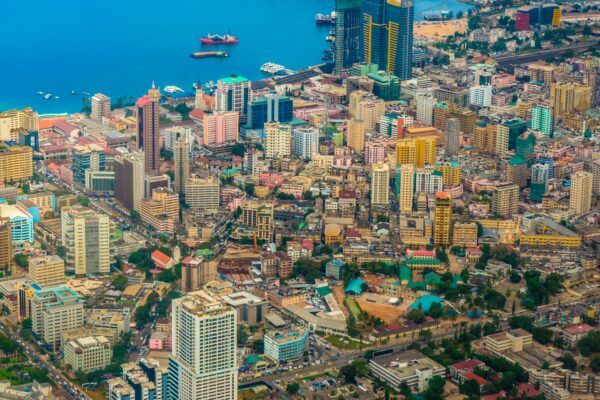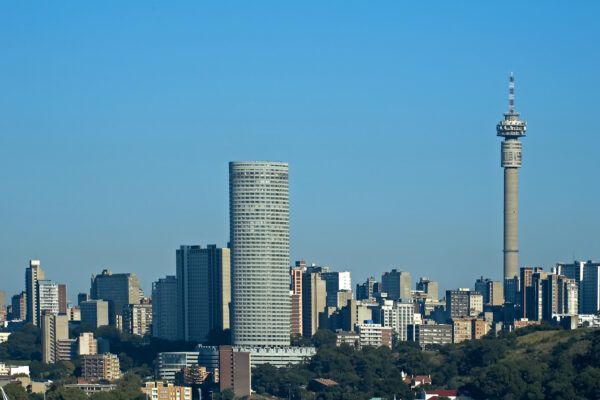Five years have passed since the launch of C40’s Clean Air Accelerator during the 2019 C40 Mayoral Summit in Copenhagen. 35 mayors signed a declaration pledging to deliver clean air to the more than 140 million people who live in their cities. The mayors came together to form an unparalleled global coalition for clean air, committing to:
- set targets in line with World Health Organization (WHO) guidelines
- implement new policies and programmes to address the highest emitting sources
- put in place necessary air quality management tools, such as air quality monitoring.
Since 2019, the coalition has expanded to 50 mayors who are dedicated to advancing action against air pollution and greenhouse gases (GHG) for 252 million people. They share a vision of meeting WHO air quality guidelines by 2030, recognising that breathing clean air is a human right.
To support this vision, C40 Cities, in partnership with Clean Air Fund, has worked closely with cities to convene networks of air quality practitioners to enable collaboration, knowledge sharing, and scaling best practices among cities. The programme also catalyses air quality policy implementation through tailored support, particularly in the Global South with technical assistance programmes, such as the African Cities for Clean Air and Breathe Cities.
Cities are at the forefront of the battle against air pollution, implementing ambitious and impactful programmes and policies to clean their air and improve residents’ health. They are implementing actions across a wide range of sectors, such as electrifying bus fleets, establishing clean air zones or transitioning to cleaner household energy sources:
Based on data gathered over five years of the C40 Clean Air Accelerator, here are five ways cities are scaling up efforts to clean the air for their residents:
1. Increased access to data
Cities are working to improve access to high-quality data to inform effective policymaking and set ambitious air quality targets. However, many cities face challenges due to the costs associated with establishing and maintaining city-wide air quality monitoring networks. Since 2019, 35 cities have expanded their air quality monitoring networks through lower-cost monitors, making it more affordable to obtain data. C40 also developed an ambient air quality data processing and reporting guide to support city staff processing data.
For example, Quezon City expanded its monitoring network to establish air quality baseline levels through a combination of reference and lower-cost monitors. This expansion facilitated the creation of the city’s first air quality management plan, approved in September 2023, outlining a long-term programme to achieve cleaner air.

Source: Quezon City Climate Change and Environmental Sustainability Department
2. Building support for action implementation
Public support and understanding of residents’ needs is crucial for the successful implementation of air quality policies and programmes. Providing residents with accessible information about air pollution and its detrimental effects on their health and daily lives is essential for garnering support for action. Highlighting the benefits of such actions and tracking air quality improvements over time can also strengthen support for future initiatives. Despite facing potential pushback and politicisation, cities strive to design policies and programmes that address residents’ needs while delivering air quality and health benefits.
Johannesburg, for example, is investing in campaigns to raise awareness on air quality. The city designates the week of the International Day for Clean Air for blue skies as Air Quality Week in the city’s calendar. This week is celebrated through social media and events to mark the occasion. In 2023, the city focused its efforts on Soweto and Orange Farm, the two most polluted regions in the country. Collaborating with C40, the programme delivered stakeholder workshops to educate ward committee members. This initiative empowered these stakeholders in the community to become local champions for air quality, while assisting in identifying the local challenges contributing to air pollution and climate impacts.
3. Cross-departmental coordination
Close collaboration among city departments ensures holistic planning of policies and programmes, breaking down silos and improving implementation of action. However establishing and maintaining coordination efforts across departments can be challenging, due to a limited staff capacity or lack of structured processes. Cities are now establishing and institutionalising formal coordination mechanisms.
In Bogotá, the District Environment Secretariat collaborates with other district departments and international entities to implement actions to reduce emissions and improve air quality. The secretariat has established several inter-administrative and consortium agreements, enabling joint implementation of initiatives and contributions from all sectors toward this common goal. The Strategic Plan for the Comprehensive Management of Air Quality, known as Plan Aire 2030, is the planning instrument that outlines the city’s actions to reduce air pollution in six sectors, encompassing 45 projects.
4. Equity-centred action
Recognizing that air pollution and its health impacts often disproportionately affect the most vulnerable and marginalised communities, cities are integrating equity considerations in programmes and policy design. London, for example, delivered an independent Integrated Impact Assessment for the city-wide Ultra-Low Emission Zone (ULEZ) proposals to assess the potential health, environmental, equality and economic impacts of the proposals on different groups, including an equalities impact assessment.
However, accessing the data needed to develop an integrated approach to air quality management remains a common challenge for many cities. To support them, C40 developed a guide for “how cities can begin addressing the health inequities of air pollution”
5. Funding allocation and budgeting decisions
Implementing climate and air quality actions at the necessary scale requires substantial funding, posing a barrier for cities with limited resources. However, cities are implementing innovative approaches to overcome this challenge. Cities like London and New York have incorporated climate budgeting within their city governance and financial budgeting cycles. This is allowing cities to better identify how budget proposals can cut greenhouse gas emissions and improve local air quality and health outcomes. This helps with decision-making and prioritisation for spending, as well as identifying further funding needs to achieve the desired greenhouse gas and air pollutant reductions.
The State of Global Air Quality Funding 2023 showed that only 1% of international development funding ($2.5 billion per year) and 2% of international public climate finance ($1.66 billion per year) was committed to targeting air pollution over the last six years. A significant increase in investment is needed to achieve the needed emission reduction to achieve the Paris Agreement and the WHO Air Quality Guidelines goals.
Collaboration to scale change
Clean Air Accelerator Cities are dedicated to delivering impactful actions to enhance liveability and residents’ wellbeing. Organisations like C40 Cities facilitate shared learning and problem-solving. Clean Air Fund, in partnership with C40, supports air quality programmes, including technical assistance for signatory cities in the global south. Clean Air Fund and C40 Cities, in partnership with Bloomberg Philanthropies, are also supporting cities through the Breathe Cities programme. These organisations are committed to working with ambitious cities and mayors to ensure cleaner air and improved health, prioritising equity to benefit those most affected by air pollution.

